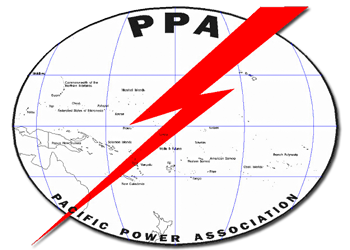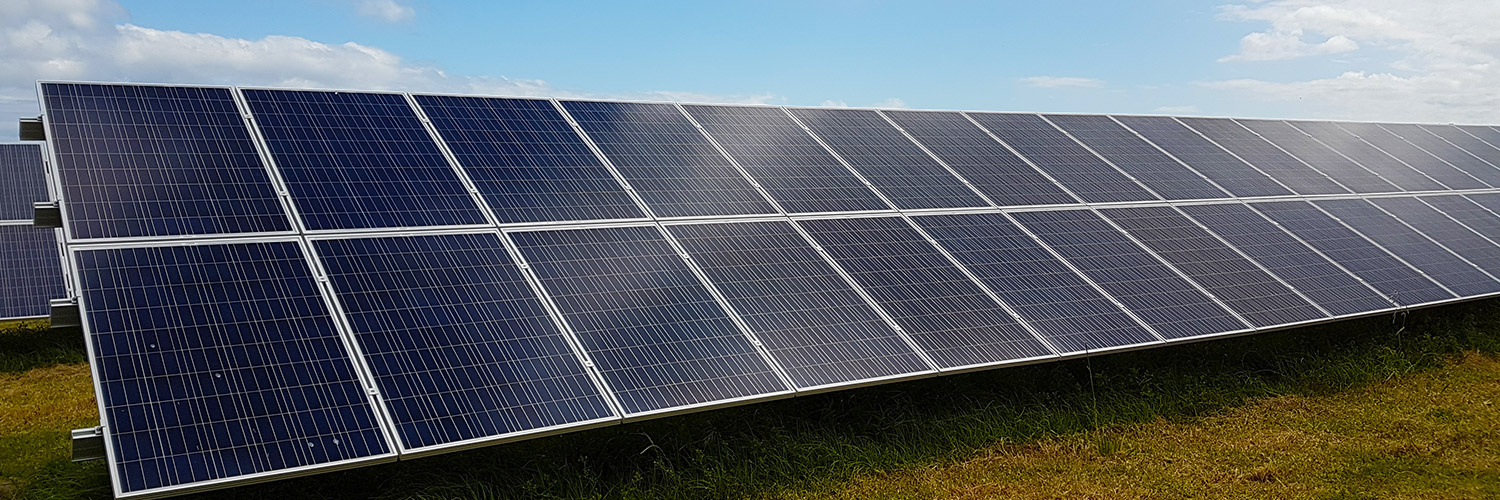BACKGROUND
The World Bank’s 10 Pacific island member countries (2.3 million people) and Papua New Guinea ( 7.3 million people) have some of the lowest rates of access to electricity in the world. Less than half of households in these countries have access to electricity with particularly low rates in PNG (13 percent), the Solomon Islands (19 percent) and Vanuatu (24 percent), which account for 84 percent of the population of all Pacific Island Countries (PICs).
Electricity prices in PICs are also among the highest in the world due largely to a heavy reliance on high-cost diesel-based generation. Increasing energy security and lowering energy usage costs are becoming increasingly important within the region and are leading to increasing investments in renewable energy technologies.
PICs are also some of those most vulnerable to the impacts of climate change and natural disasters. The energy sector can be highly vulnerable to such events, which requires adequate attention to these issues in the design of energy production and distribution infrastructure.
ABOUT THE PROJECT
The Sustainable Energy Industry Development Project (SEIDP) aims to increase the data availability and capacity of power utilities in PICs, to enhance their ability to incorporate and manage renewable energy technologies and long-term disaster risk planning.
The project will provide support to the Pacific Power Association (PPA) to assist PIC utilities through a series of activities which will:
- Increase publicly available information on renewable energy resources.
- Increase available planning tools, and provide training to both the PPA and PIC power utilities in the use of these tools.
- Improve technical and institutional capacity within the PPA and PIC power utilities for planning and management, aimed at the successful integration and long-term management of power systems with higher levels of renewable energy.
- Strengthened planning capacity for disaster recovery and risk reduction within PIC power utilities.
The project will build on existing renewable energy policies and frameworks already implemented by governments and administrations in the region. Together with coordination from the PPA, the project will promote the implementation of shared renewable energy objectives.
Electricity facilitates economic activity and the delivery of key public services, including health, education and infrastructure services. SEIDP will help to reduce poverty and boost shared prosperity in the Pacific by enhancing access to electricity and the economic benefits that come from this for years to come.
For more detailed information on each of the three project components please see over.
Renewable Energy Resource Mapping
SUMMARY:
This component will carry out a resource-mapping assessment of solar and wind capacity across the 12 participating PICs, incorporating phases 1 to 3 of the five phases of resource mapping being supported under the Energy Sector Management Assistance Program (ESMAP).
The objective of this component is to enhance government, power utilities and private sector awareness and knowledge of the resource potential for renewable technologies (solar and wind), and to provide governments with a spatial planning framework to guide investment in the renewable energy sector.
Technical Assistance
SUMMARY:
This component will carry out a program of activities designed to increase capacity within the PIC power utilities on planning for and management of the integration of variable renewable energy in their systems, data collection and management, and knowledge sharing across jurisdictions. This program of activities will include:
- acquisition of modeling software and consultancy services for renewable energy integration and capacity building
- development of an online power benchmarking platform
- development of industry guidelines and competency standards
training/workshops - career development initiatives for power utilities
- supporting power utilities’ capacity for citizen engagement through support from the Global Partnership on Social Accountability (GPSA)
- assistance with mainstreaming gender equity/equality in the power sector
disaster-recovery and risk-reduction activities for power utilities.
FINANCING:
Scaling Up Renewable Energy Program (SREP) US$1.6 million; SIDS DOCK US$0.7 million; Government of Japan through the Global Facility for Disaster Reduction and Recovery (GFDRR) US$0.27 million.
Project Implementation Support
SUMMARY:
This component will carry out a program of activities designed to enhance the PPA’s capacity for overall project coordination, management and monitoring. These activities include coordination, administration, technical operation, procurement, financial management (FM), environmental and social management, gender action plan implementation, monitoring and evaluation (M&E), and reporting.
FINANCING:
SIDS DOCK US$0.5 million; SREP US$0.32 million.
For further information please visit the links below:
World Bank website — http://www.worldbank.org/projects/P152653?lang=en
PPA website — https://www.ppa.org.fj/world-bank-provides-grant-for-renewable-energy/

